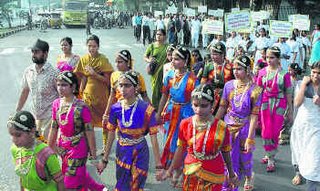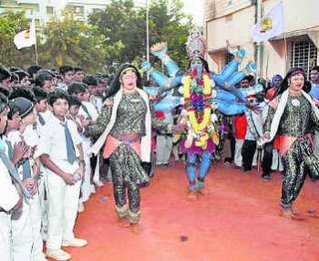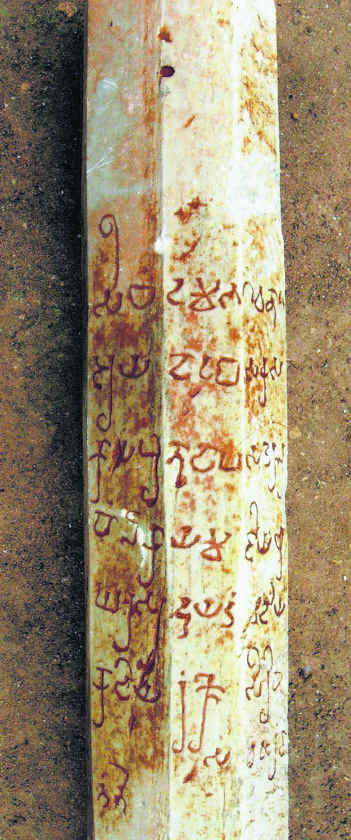Telugu boards may be made mandatory
Government to make it mandatory for shops
 ARTISTIC PROTEST: Children leading the procession to Ravindra Bharati on Saturday.- PHOTO: P.V.Sivakumar
ARTISTIC PROTEST: Children leading the procession to Ravindra Bharati on Saturday.- PHOTO: P.V.SivakumarHYDERABAD: The State Government is proposing to make it mandatory for commercial establishments in the city to display name boards in Telugu language.
At a gathering of Telugu Association of North America's (TANA) తెలుగు భాష చైతన్యోత్సవం (Telugu Basha Chaitanyotsavam) here on Saturday, Chief Minister Y.S. Rajasekhara Reddy expressed concern over the neglect of Telugu in every day life.
A resolution was passed in the Assembly recently and was forwarded to the Centre seeking classical language status for Telugu, he said. "Time has now come to make people aware of the decline in Telugu usage ," he said.
On the occasion, Telugu Language Movement Federation president C. Dharma Rao was felicitated. Earlier, TANA members and school students, software employees, artistes and volunteers of Potti Sreeramulu Telugu University took out a procession from the university premises to Ravindra Bharathi.
Courtesy: The Hindu









